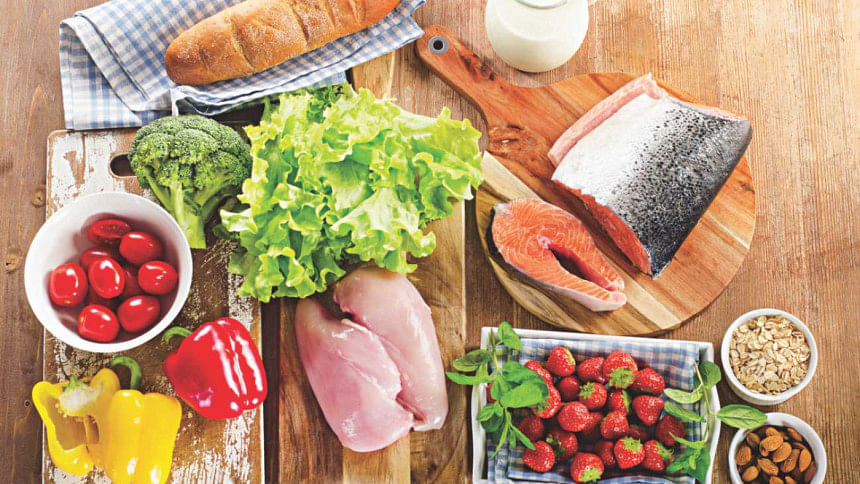Healthy food habits for Ramadan

It is common knowledge that fasting has myriad health benefits. Besides increasing immunity, endurance, and the ability to face challenges, fasting contributes to our outward physical appearance by getting rid of excess fat.
It alleviates a number of diseases, including chronic stomachaches, inflammation of the colon, liver diseases, indigestion, and conditions such as obesity, arteriosclerosis, hypertension, asthma, diphtheria and others.
For obvious reasons, it is important to maintain a proper diet in the coming days of Ramadan. As most of us will be fasting all day, a well-balanced intake of food and fluid is important between dusk and dawn.
Sehri should be wholesome and moderate— filling as well as supplying sufficient energy till iftar. It is recommended that the meal should be light and include slow digesting food. At iftar, have plenty of fluids rich in vitamins (sherbet, juices or if you prefer, whole fruits).
Following Prophetic tradition, it is customary to open the fast with dates, which is unique in its nutrient content — a unique blend of glucose and fructose (for short and long term energy); high level of potassium (about 64 percent more than bananas), and a special blend of carbohydrate that ensures hydration above and beyond water alone. It also has beta-D-glucan, which is a soluble fibre that gives the stomach a 'full' feeling.
The thumb rule of diet during the entire month should be to include foods from all the major food groups:
Fruit and vegetables
Bread, other cereals and potatoes
Meat, fish and alternatives
Milk and dairy foods
Foods containing fat and sugar
Food to be avoided
Fried and fatty foods like pakoras, samosas, parathas, oily curries and greasy pastries, etc.
Foods containing too much sugar
Over-eating especially during sehri
Too much tea at sehri. Tea is a diuretic, that is, it increases urine production, which results in the loss of minerals.
Food to be taken
Complex carbohydrates during sehri so that the food lasts longer in the stomach making us less hungry
Haleem is an excellent source of sugar, fibre, carbohydrates, potassium and magnesium
Almonds are rich in protein and fibre with less fat
Bananas are a good source of potassium, magnesium and carbohydrates.
Drink
Drink as much water or fruit juices as possible between iftar and bedtime so that the body may adjust the fluid levels in time.
Healthy alternatives
Whole grains, such as chickpeas, samosas (baked instead of fried)
Chapattis made without oil, baked or grilled meat and chicken
Milk-based sweets and puddings
Cooking methods to be avoided
Deep frying
Frying
Curries with excessive oil
Healthy cooking methods
Shallow frying (usually there is little difference in taste)
Grilling or baking is healthier and helps retain the taste and original flavour of the food, especially with chicken and fish.

 For all latest news, follow The Daily Star's Google News channel.
For all latest news, follow The Daily Star's Google News channel. 



Comments